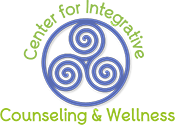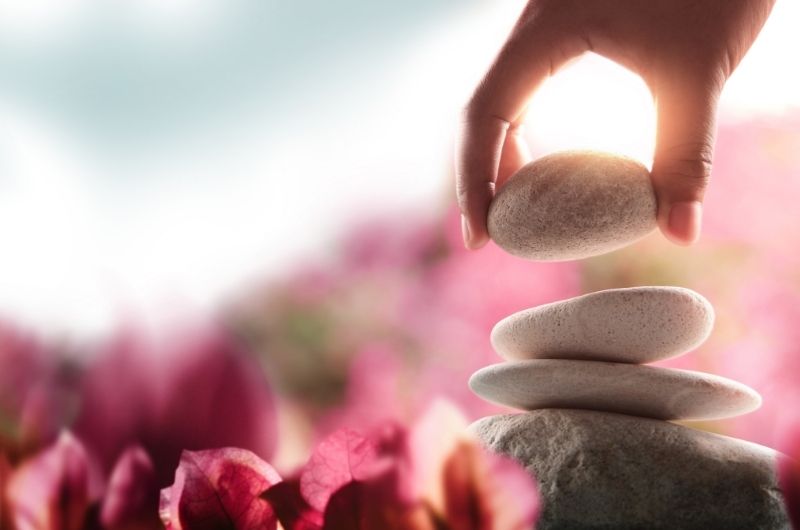by Barbara J Green PhD
An interview by Tricia Rose Stone of Rose Colored Glasses.
I recently sat down with Barbara Green, Ph.D., to discuss the importance of self-compassion for mothers. Dr. Green is a licensed psychologist specializing in integrating traditional therapy with a well-rounded wellness model for optimal health and wellbeing. She co-founded the Center for Integrated Counseling and Wellness in Hingham, MA, and actively devotes her time and service to various mental health community initiatives in Boston’s south shore area.
RCG: Hi Dr. Green! Thank you so much for being here. I’m really looking forward to hearing your insights as we discuss the importance of self-compassion for mothers. This topic is important to me. A self-compassion and self-nurturing mindset is something that I’ve tried to cultivate over time, especially during the 15 years that I was a single mom.
Looking back, I can remember being very hard on myself and thinking about everything I was doing wrong. It took me a long time to realize that my lack of self-compassion and self-care was at the root of many of my struggles. I’ve worked on this, little by little, and now feel that I’ve learned to adopt a healthier approach in which I try to speak more kindly to myself throughout the day as things come up.
This seems like a rich and meaningful topic with so much to learn from all perspectives.
Dr. Green: Self-compassion and self-care for mothers are essential. Women demonstrate compassion and care so naturally for their children. It’s so important that they also focus that level of care on themselves.
A Shift That Occurs When Becoming a Mother
RCG: It’s clear to see when we, as mothers, shift our focus so abruptly to the needs of our child. When I first became a mother, I remember it was as if there was a spotlight in my mind; the entire focus of that light shifted onto my newborn daughter. I know that’s probably very natural and normal, but the focus needs to begin to shift back into a more balanced alignment after a while.
It’s hard to put the experience of becoming a mother into words. Instantaneously, we undergo change on all levels. In a moment, you go from being an independent person to being fully responsible for another human being, all while still learning about your own self. Of course, I didn’t have all of the answers. I was learning along the way and still am. Emotionally, it was exhilarating, heart-bursting, and overwhelming all at the same time.
The persistent focus on my daughter’s wellbeing was a natural and important shift. The idea of thinking of myself, my feelings, etc., wasn’t something, at that time, that seemed important. It’s almost like I had to relearn how to practice self-care and self-compassion, not that I was great at it before! I had to gradually move that spotlight back on to myself while still keeping a light on my daughter as well. This is a continual process and doesn’t only apply to the newborn and toddler years. For me, it is a lifelong shift and process.
Importance of Establishing a Setpoint for Ourselves – A Baseline for Awareness
Dr. Green: The idea of self-compassion for mothers is foundational. Mothers need to be kinder to themselves. Talking about kindness to self, and learning to recognize when we’re losing our connection within, is that which I call maintaining a “setpoint.”
A setpoint is where we remain aware and mindful of “how I am doing, how am I feeling?” Always taking your temperature, so to speak.
We do that so naturally with our children. We need to start doing that for ourselves. Because when we are grounded in self-awareness, we can open our awareness to our children.
If we become so singularly focused and have a myopic view of our children instead, we lose the big picture. I like to refer to the old airplane language, “place your mask on first, then assist those who need help around you.”
RCG: The idea of opening our awareness to our children really resonates with me. It reminds me of that Oprah episode with Toni Morrison. As they discussed parenting, Toni Morrison asked, when a child enters the room, “does your face light up?” When I think of that image, I envision a mother who is aware and responding to her child. I think of how important that feeling of recognition must be for a child.
Selfishness Versus Self-Care- Breaking Down Stereotypes
RCG: Women focusing on self-care and self-compassion may still be perceived as new and even threatening in some circles. I’ve been in a room full of mothers before, and when one of the women mentioned going on a weekend yoga retreat, I could feel the judgment stirring in the room. It’s like we know it’s important, yet there are still ingrained belief systems that support a more self-sacrificing role that a mother is expected to take on.
Dr. Green: We really need to cut the ties between thinking that it’s selfish to take care of ourselves.
Self-care is the opposite of selfishness— bottom line.
It’s not selfish. It’s restoring and refueling. Car engines do not run on empty.
Especially with the Covid-19 pandemic, women struggle to manage the expectations in the roles placed upon them. It’s like a Raggedy Ann doll bursting at the seams. We’re attempting to put 50 pounds of time and demand in a five-pound sack.
What Does Self-Compassion Look Like?
Dr. Green: I want to dispel the myth that it has to be a week-long retreat.
It’s about finding a moment and finding that heart space, headspace, mind space, and even physical space… in the context of 24/7 living. It’s about recognizing it, needing it, giving it value, and having the family understand its importance.
Also, reinforcing that everybody needs and deserves it.
I’m a big believer in baby steps. You can do a 5-minute meditation, and if you’re really using it, it will work. It will hit you at the moment, and you will bounce back again. It’s about refueling, restoring, renewing, and revitalizing.
Another example is breath. The power of breath is free, abundant, and always available.
RCG: Eckhart Tolle teaches the method of “one conscious breath.” He teaches that if you take one breath, and for the entirety of the inhale and exhale, you continue to keep your full attention on your breath; it’s like a mini-meditation that you can do any time.
Dr.Green: Yes, just taking an intentional deep breath, as often as you need, is a wonderful self-care tool.
Expert Recommendation: Taking Five
I highly recommend Taking Five as you need to throughout the day. Walk out of your door. Breathe in the fresh air.
Try to incorporate meditation, breathwork, exercise, nutrition, shutting down electronics, shutting down electronics, and shutting down electronics.
RCG: (laughing!) Yes, that is so true!
Dr. Green: Also, I’m a big fan of the Fun Factor. My colleague calls it Vitamin C – for Connection. Women inherently like to affiliate and gather with friends and with the community. Making an effort to connect with friends and family is an important part of self-care.
The Importance of Modeling Self-Compassion
RCG: It wasn’t until I was in my mid-thirties that I began to see the impact of how, growing up, my mom’s sense of self-care and self-compassion shaped many aspects of my own sense of self, and how, likewise, my sense of self-care and self-compassion impact my child. Prioritizing a loving and accepting voice that says, “Please give yourself a break. You are a good person and a good mother. You are doing your best,” is a conscious choice I need to make.
It reminds me of what Susan Stiffelman says in Parenting with Presence, “You’re not raising a child. You’re raising an adult.” It’s almost like, on a visceral level, children know how their mother feels about herself and how she values herself. By choosing self-care and self-compassion, I am also mindfully setting the tone for what I wish for my daughter when she is in her 30’s and 40’s, juggling the many responsibilities that go along with raising children.
So, demonstrating self-compassion may look like being mindful of negative, critical self-talk and welcoming in that loving, encouraging inner voice. Also, making choices like those you mention above, including having more Take Fives and mindful moments. Every day is a fresh new start to try again and make choices aligned with self-care and self-compassion.
It’s an interesting shift from traditional “mothering” to a version of “modeling.” Showing your children what it looks like and feels like to be in the presence of a mother, a woman, who deeply values herself and her feelings.
The Importance of Modeling Self-Compassion
RCG: It wasn’t until I was in my mid-thirties that I began to see the impact of how, growing up, my mom’s sense of self-care and self-compassion shaped many aspects of my own sense of self, and how, likewise, my sense of self-care and self-compassion impact my child. Prioritizing a loving and accepting voice that says, “Please give yourself a break. You are a good person and a good mother. You are doing your best,” is a conscious choice I need to make.
It reminds me of what Susan Stiffelman says in Parenting with Presence, “You’re not raising a child. You’re raising an adult.” It’s almost like, on a visceral level, children know how their mother feels about herself and how she values herself. By choosing self-care and self-compassion, I am also mindfully setting the tone for what I wish for my daughter when she is in her 30’s and 40’s, juggling the many responsibilities that go along with raising children.
So, demonstrating self-compassion may look like being mindful of negative, critical self-talk and welcoming in that loving, encouraging inner voice. Also, making choices like those you mention above, including having more Take Fives and mindful moments. Every day is a fresh new start to try again and make choices aligned with self-care and self-compassion.
It’s an interesting shift from traditional “mothering” to a version of “modeling.” Showing your children what it looks like and feels like to be in the presence of a mother, a woman, who deeply values herself and her feelings.











